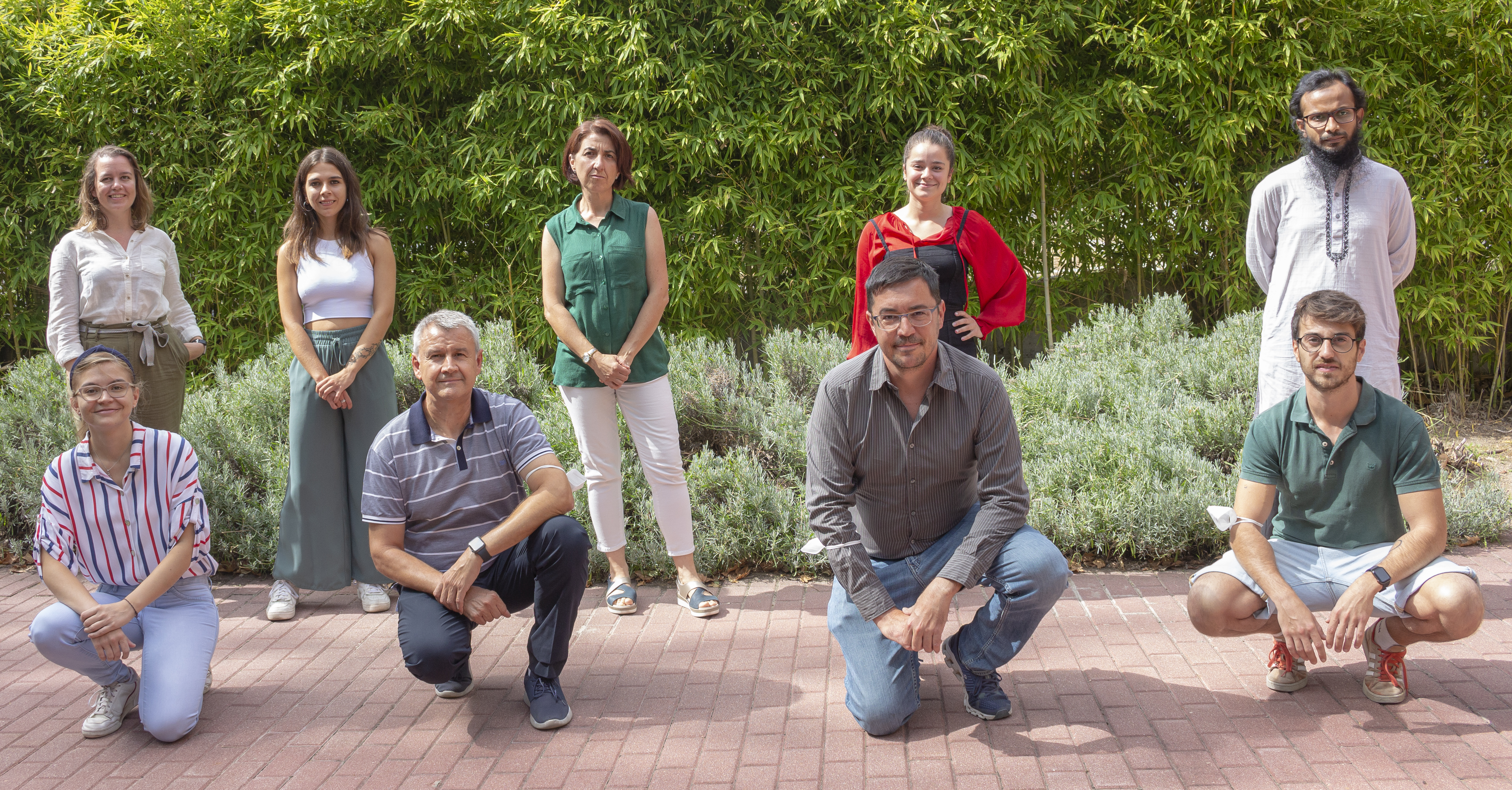Group Leader/s
Group PI/s
intro
DNA replication and Genome Integrity Maintenance.
The main interest of our lab deals with understanding the molecular mechanisms that protect Genome Integrity, with a strong focus on DNA replication. Problems occurring during replication are an important cause of genomic instability and have been related to human disease including cancer.

DNA replication is the fascinating process allowing living organisms to grow and propagate by rapidly generating virtually identical copies of their genetic material. However, replication has a dark side for the cell as it is carried out in specialized structures (i.e. replication forks) that are intrinsically fragile and prone to engage in unscheduled recombination events. Replication fork progression is hampered when DNA synthesis is inhibited or when forks interfere with other chromosome metabolic processes (e.g. gene transcription or DNA repair). In situations replication forks tend to collapse and generate DNA breaks. Aberrant repair of collapsed forks, particularly in the context of a defective cellular response to DNA damage, give rise to mutations and chromosomal rearrangements, hallmarks of malignant transformation.
The main goal of our team is understanding the mechanisms that stabilize replication forks facing natural barriers to their progression (such as highly transcribed genes) and are mediated by specialized molecular machines as DNA topoisomerases and helicases. We also focus in understanding how cells coordinate stalled replication fork signalling, through the DNA damage checkpoint response, with the mechanisms in charge of maintaining their integrity for DNA synthesis and that process them to prevent the accumulation of chromosome abnormalities.
We study these fundamental mechanisms by a multidisciplinary approach combining genetic approaches, which allow dissecting the function of key factors involved in these processes, with genomic and molecular biology methodologies enabling a detailed analysis of replication dynamics.
Our group is very interested in training young scientists by providing a competitive international environment to carry out conceptually and technically innovative projects. If you are interested in joining the group send us a current CV and motivation letter.
The group carried out the European Project CHECKPOINT-INACT. Information related to the project can be found here.
Members
| Rodrigo Bermejo Moreno |
| Jose Arturo Calzada García |
| Esther Cabañas Morafraile |
| Marta Garcia Flores |
| Janis Banderas Diaz |
| Marta Velasco Diez |
| Dolores Jurado Santiago |
| Sofia Karidi |
| Sol Escamilla Torres |
| Helena Sanz Andres |

Selected Publications
Pellicanò G, Al Mamun M, Jurado-Santiago D,Villa-Hernández S, Yin X, Giannattasio M, Lanz MC, Smolka MB, Yeeles J, Shirahige K, García-Díaz M, and Bermejo R. [2021]. Checkpoint-mediated DNA polymerase ε exonuclease activity curbing counteracts resection-driven fork collapse. Mol Cell. 2021 Apr 22:S1097-2765(21)00311-7. doi: 10.1016/j.molcel.2021.04.006.
Villa-Hernández S, Bermejo R. [2018]. Cohesin dynamic association to chromatin and interfacing with replication forks in genome integrity maintenance. Curr Genet.;64(5):1005-1013.
Funding
SPANISH MINISTRY OF SCIENCE, INNOVATION AND UNIVERSITIES: PID2023-149327NB-I00 financed by MICIU/AEI /10.13039/501100011033 and by FEDER, EU
SPANISH MINISTRY OF SCIENCE AND INNOVATION: PID2020-116003GB-I00 financed by MICIU/AEI /10.13039/501100011033
CASTILLA Y LEÓN EDUCATION COUNCIL: SA103P20
SPANISH MINISTRY OF SCIENCE, INNOVATION AND UNIVERSITIES: BFU2017-87013-R
SPANISH MINISTRY OF ECONOMY AND COMPETITIVENESS: BFU2014-52529-R
SPANISH MINISTRY OF SCIENCE AND INNOVATION: BFU2011-24909
EUROPEAN UNION: FP7-PEOPLE-CIG1386
BBVA Foundation: Leornardo Prize 2018.

